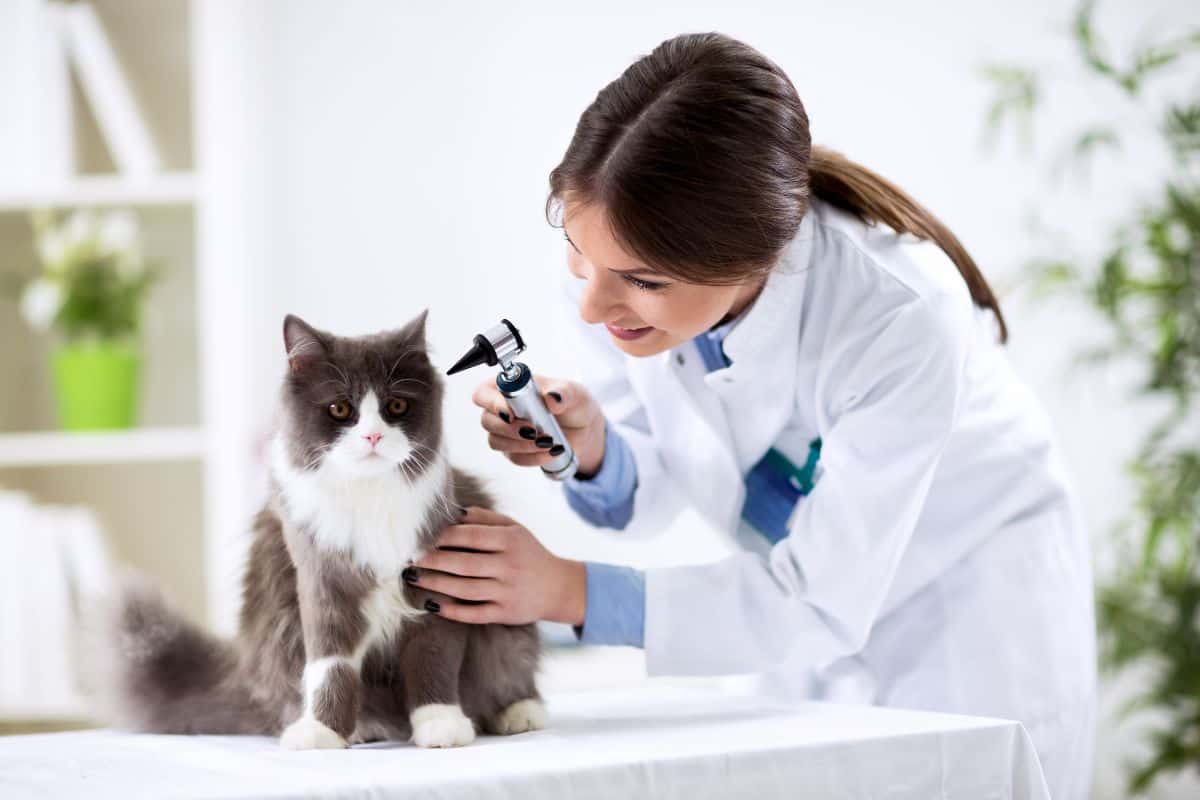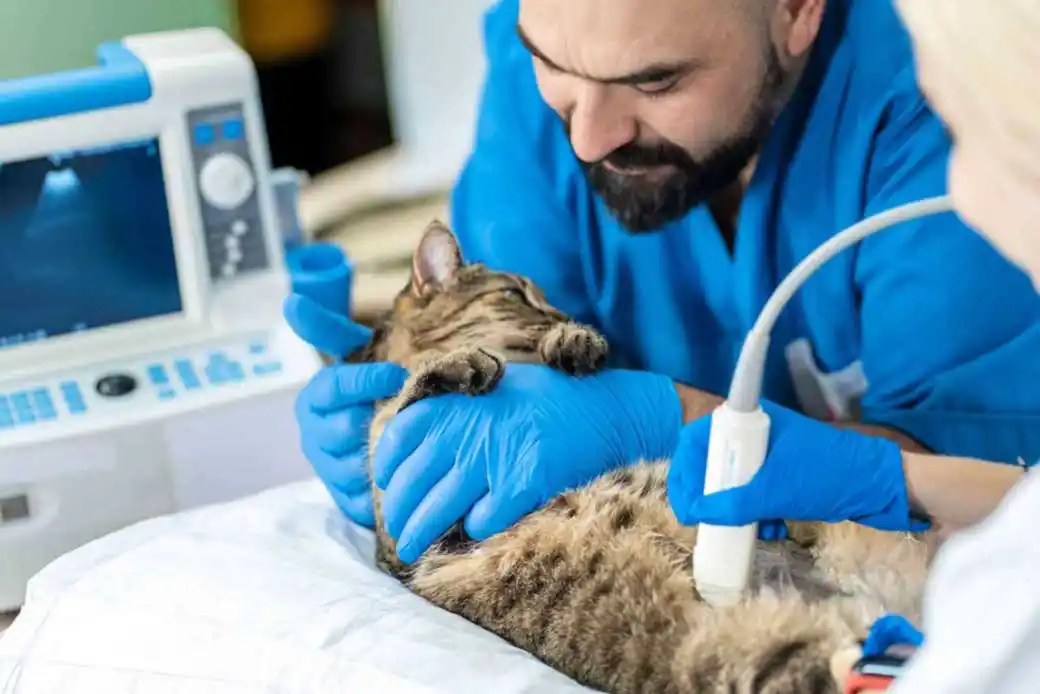Comprehensive Guide to the Services Supplied by a Vet Oncologist
Vet oncology includes a vast variety of solutions intended at diagnosing and dealing with cancer in pet dogs. Veterinary Oncology Services. Oncologists employ sophisticated diagnostic strategies and provide numerous treatment alternatives tailored to each pet's needs. They additionally focus on helpful care and give useful sources for pet dog proprietors. Recognizing these services is necessary for making notified decisions. What details elements of vet oncology can significantly influence a family pet's therapy journey?
Comprehending Veterinary Oncology
Veterinary oncology is a customized field concentrated on dealing with and diagnosing cancer in animals. This self-control incorporates a wide variety of approaches, from clinical treatments such as radiation treatment and immunotherapy to surgical interventions targeted at getting rid of lumps. Vet oncologists are educated to identify the special indications of cancer in numerous varieties, enabling them to tailor treatment strategies to specific clients.
In addition to traditional treatments, veterinary oncology stresses encouraging care, which plays a vital function in boosting the lifestyle for afflicted animals. This consists of pain management, nutritional support, and palliative treatment options. Partnership with pet owners is important, as they are integral to decision-making concerning their family pets' therapy courses. As study advancements, vet oncology remains to progress, supplying new hope and boosted end results for family pets diagnosed with cancer. In general, this field is fundamental for dealing with the complexities of cancer in buddy pets.
Advanced Diagnostic Techniques
Advanced diagnostic methods play a crucial duty in vet oncology, giving important understandings into the presence and extent of cancer cells in animals. Imaging methods such as ultrasound, CT scans, and MRI are typically employed to imagine tumors and assess their characteristics. Additionally, biopsy treatments are necessary for obtaining cells examples, permitting conclusive diagnosis and customized treatment plans.
Imaging Modalities Utilized
Imaging modalities play an essential duty in the medical diagnosis and administration of cancer cells in animals. Veterinary oncologists utilize various advanced imaging techniques to analyze lump metastasis, presence, and dimension. Radiography, or X-rays, supplies an initial sight of bone and breast problems, while ultrasound provides real-time imaging of soft tissues, enabling thorough evaluation of interior organs. Computed tomography (CT) enhances visualization of intricate physiological structures and makes it possible for 3D restorations, aiding in exact tumor localization. Magnetic vibration imaging (MRI) is indispensable for soft cells distinction, particularly in brain tumors. Furthermore, nuclear medication methods such as positron exhaust tomography (PET DOG) assistance recognize metabolic activity within tumors. Collectively, these techniques boost diagnostic precision, directing efficient therapy approaches for oncological clients.
Biopsy Procedures Described
Adhering to the initial evaluation via imaging modalities, obtaining a conclusive medical diagnosis typically calls for cells sampling through biopsy treatments. Vet oncologists make use of numerous biopsy techniques based on the growth's place and characteristics. Great needle aspiration (FNA) is a minimally invasive technique that draws out cells for cytological exam, perfect for superficial masses. Core needle biopsies supply larger cells samples and work for much deeper growths, enabling for histopathological evaluation. Surgical biopsies entail excising a portion or the entire tumor, assisting in extensive analysis. These procedures not just validate the existence of cancer but also help determine its type and quality, directing treatment decisions. Each biopsy method is selected carefully to stabilize analysis precision with client safety and convenience.
Treatment Options for Cancer in Pet dogs
When a pet dog is detected with cancer cells, a selection of therapy options appear to assist manage the disease and enhance lifestyle. Vet oncologists normally advise a multidisciplinary technique customized to the individual family pet's demands, which may include surgical procedure, radiation treatment, immunotherapy, or alternative therapies.
Surgical procedure is commonly employed to eliminate lumps and afflicted tissues, possibly resulting in total remission sometimes. Radiation therapy intends to target and ruin cancer cells, decreasing lump size and easing signs and symptoms - Veterinary Oncology Services. Immunotherapy utilizes the pet dog's immune system to battle cancer cells better, while alternate treatments could include acupuncture or natural supplements to sustain total wellness
Each treatment alternative lugs its own benefits and risks, and vet oncologists function very closely with pet owners to develop an extensive strategy that lines up with the family pet's particular medical diagnosis and the proprietor's desires. The ultimate objective is to improve the family pet's convenience and lifestyle throughout their cancer journey.
Chemotherapy for Pets
Chemotherapy is a typical treatment alternative for pets detected with cancer cells and is commonly made use of in conjunction with various other therapies described by veterinary oncologists. This therapy includes the administration of specific drugs created to damage and target cancer cells, therefore minimizing lump dimension and stopping the spread of the condition. Veterinary oncologists customize radiation treatment procedures based upon the kind of cancer, the family pet's total health, and the wanted treatment result.
Side results can happen, as these medicines might likewise influence healthy and balanced cells. Typical responses include queasiness, throwing up, and short-lived changes in cravings - Pet Cancer Surgery. Veterinary oncologists are equipped to handle these adverse effects efficiently, guaranteeing the animal's comfort throughout the therapy process. Routine monitoring through blood examinations and follow-up visits is important to evaluate the pet's response to chemotherapy and make needed modifications. Eventually, chemotherapy can provide considerable benefits, enhancing the top quality of life for pets dealing with cancer cells diagnoses

Radiation Treatment in Veterinary Medication
Radiation therapy works as an effective therapy option for family pets diagnosed with localized growths, using a targeted method to cancer management. This method makes use of high-energy radiation to harm the DNA of cancer cells, inhibiting their capability to proliferate. It is specifically valuable for lumps that are not responsive to surgical removal or for instances where surgical treatment might not be possible as a result of the tumor's place.
Veterinary oncologists customize radiation methods based upon growth dimension, place, and kind, along with the pet dog's overall health. Therapy can be supplied by means of outside light beam radiation or brachytherapy, each with distinct benefits. Generally, multiple sessions are needed to take full advantage of effectiveness while reducing adverse effects.
Pet dogs may experience temporary reactions such as skin irritability, the total aim is to shrink tumors and reduce signs, eventually improving the pet dog's diagnosis and top quality of life. Appropriately, radiation treatment plays a crucial duty in comprehensive cancer cells care.
Palliative Treatment and Lifestyle
Palliative care in vet oncology concentrates on boosting the lifestyle for pets facing incurable diseases, guaranteeing comfort and self-respect in their last days. This specific approach focuses on pain monitoring, signs and symptom control, and emotional support. Vet oncologists examine each pet dog's individual needs, customizing interventions to alleviate pain and improve overall wellness.
Methods may include carrying out drugs for pain relief, handling queasiness, and attending to other traumatic signs and symptoms. In addition, dietary support is typically provided to keep strength and boost hunger. The emotional aspect of palliative treatment is equally vital; creating a calm atmosphere helps in reducing anxiety for both animal and owner.
Eventually, the goal of palliative treatment is to permit family pets to enjoy their remaining time with as much joy and dignity as feasible. By concentrating on comfort and high quality of life, vet oncologists play an important role in ensuring that pets and their households navigate this difficult trip with concern and understanding.
Assistance for Animal Owners Throughout Therapy

Psychological Guidance for Owners
Charting the emotional landscape during a family pet's cancer cells treatment can be an overwhelming experience for owners. The unpredictability surrounding medical diagnosis and diagnosis can lead to feelings of helplessness, stress and anxiety, and sadness. Vet oncologists acknowledge the value of emotional support and frequently supply assistance to aid proprietors browse this tough trip. Communication is essential; talking about treatment options and prospective end results can relieve some worries. Furthermore, providing confidence that emotional responses stand fosters a supportive environment. Lots of oncology facilities may likewise suggest assistance teams or therapy services tailored for pet dog owners, helping with common experiences. Urging proprietors to prioritize self-care throughout this time is vital, as their emotional health straight influences their pet dog's comfort and total therapy experience.

Resources and Educational Products
Guiding via the intricacies of a family pet's cancer cells therapy can be daunting for proprietors, making accessibility to reputable sources and instructional materials vital. Veterinary oncologists commonly offer a range of handouts, sales brochures, and online products that discuss therapy options, prospective side impacts, and care approaches. These sources assist demystify the process and equip pet proprietors to make enlightened choices. Furthermore, several oncology facilities use access to sustain online forums and teams where proprietors can connect with others encountering similar obstacles, cultivating a feeling of area. Educational workshops and webinars performed by veterinary professionals better improve understanding, making sure that proprietors are well-equipped to browse their animal's trip via cancer treatment with confidence and expertise.
Frequently Asked Concerns
How Can I Prepare My Animal for a Vet Oncology Go To?
Preparing a pet for a veterinary oncology see entails event clinical documents, noting signs and symptoms, and guaranteeing the pet dog is comfy. A calm demeanor and familiar things can help relieve anxiety throughout the visit.
What Are the Indicators My Pet May Have Cancer Cells?
Indications that a pet might have cancer cells include unusual weight-loss, persistent vomiting or diarrhea, uncommon swellings or swellings, lethargy, modifications in appetite, difficulty breathing, and modifications in actions. Prompt vet attention is crucial.
Just How Can I Assistance My Family Pet Psychologically During Therapy?
Supporting a pet mentally throughout therapy includes giving comfort, preserving regimens, providing mild affection, and guaranteeing a calm setting. Participating in quiet play and routine friendship aids ease stress and anxiety and promotes a sense of safety.
Exist Alternate Therapies for Animals With Cancer?
Alternate treatments for pets with cancer consist of acupuncture, herbal therapies, and nutritional assistance. These methods might complement standard treatments, promoting overall health. Consulting with a vet is important for effective and secure combination of alternative therapies.
What Prices Should I Expect for Vet Oncology Services?
The anticipated costs for vet oncology services can vary considerably, commonly influenced by diagnostics, treatments, and recurring care. Family pet proprietors ought to plan for expenses ranging from appointments to specialized treatments, reflecting the intricacy of cancer cells management.
Partnership with pet dog owners is important, as they are indispensable to decision-making regarding their animals' therapy courses. Each treatment option brings its very own advantages and risks, and veterinary oncologists work carefully with animal proprietors to make a complete strategy that aligns with the animal's particular diagnosis and the owner's wishes. Family pets may experience momentary responses such as skin inflammation, the total purpose is to reduce lumps and reduce symptoms, eventually enhancing the pet dog's diagnosis and top quality of life. Assistance for pet dog proprietors throughout treatment is crucial in steering through the emotional difficulties connected with a family pet's cancer cells medical diagnosis. Preparing a family pet for a vet oncology see entails celebration clinical documents, keeping in mind signs and symptoms, and making certain the pet is comfy.